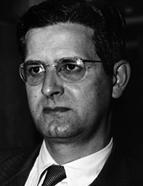

By making little use of the jargon, concepts, and analytical formulas of historical materialism, this book lost interest and diluted this identity in the face of seminal work Evolução política do Brasil . By promoting an articulation between regional specificities and the general meaning of modern colonisation, it was close to French regional geography, economic geography, and the historiographical practices of the magazine Annales d’Histoire Économique et Sociale . This original combination of methods and disciplines in the study of Brazilian history resulted in the classificatory confusion in the criticism of the book in the 1940s and after, with the exception of the analysis of Fernand Braudel, a former professor at the USP and a reader of Caio Prado Júnior. The author's motivation in Formação do Brasil contemporâneo was not dissimilar to the writing of his previous books: the aim of the political action of communists and the democratic segments in Brazil. The author's methodological perspective and analytical wit were geared towards a twofold purpose: on the one hand, to explain the relations of appropriation, use, and exploitation of land that prevailed in Brazil until the mid-20th century, and on the other hand, the repeated dependence of the colonial and national economy on the production of tropical commodities and minerals destined for the foreign market. The intellectual effort was aimed at better clarifying the paths and possibilities for the realisation of the agrarian and anti-imperialist revolution, which was proposed by the international communist movement until its dissolution in 1943 and which survived in the political imagination of PCB leaders and militants after that date. The specificities of Brazil's economic and social formation and, consequently, the strategies of political action that the author pointed out and defended, left him on a collision course with the successive party leaderships of the communists and their spokespeople until the civil-military coup in April 1964. The understanding of these historical specificities explains the intellectual interest and the editorial longevity that the book still enjoys today.
This work is financed by national funds through FCT - Foundation for Science and Technology, I.P, in the scope of the projects UIDB/04311/2020 and UIDP/04311/2020.
